Greenhouse farming is an innovative method of agriculture where crops are grown under a controlled environment, offering a favorable setting regardless of external weather conditions. This approach to farming is gaining popularity due to its efficiency and the ability to produce high-quality, year-round crops. For those interested in starting a greenhouse farming business, understanding how to apply for a greenhouse subsidy and how to get a free greenhouse from the government can be crucial.
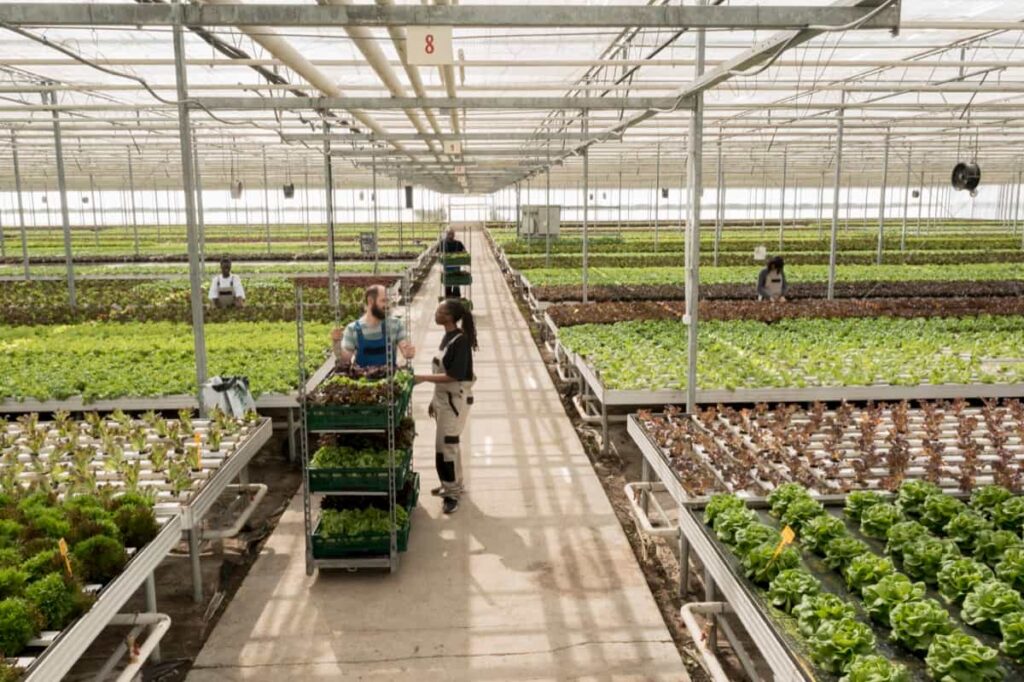
These forms of financial assistance, including beginning farmer grants and learning how to get a farm grant, can significantly reduce initial investment and operational costs. Moreover, grants and subsidies often aim to encourage sustainable and environmentally friendly farming practices, aligning perfectly with the nature of greenhouse farming.
Grants for Starting a Greenhouse Farming
Benefits of Starting a Greenhouse Farming Business
Starting a greenhouse farming business comes with numerous benefits. Firstly, it allows for extended growing seasons, as crops are not as affected by changing weather conditions. This can lead to more consistent and potentially higher yields than traditional farming. Greenhouse farming also enables the cultivation of a wider variety of crops, including those not typically grown in the local climate, thereby diversifying production and potentially opening up new market opportunities.
In terms of sustainability, greenhouses can be more water-efficient and may use fewer chemical inputs. Furthermore, by implementing advanced technologies, such as automated irrigation and climate control systems, greenhouse farming can reduce labor costs and increase efficiency. These benefits make greenhouse farming an attractive option for new and existing farmers.
Understanding Grants and Funding Opportunities
Navigating the landscape of grants and funding for greenhouse farming can be complex, but understanding the available options is crucial for securing financial support. Grants are usually non-repayable funds provided by government entities, non-profit organizations, or other agencies to promote certain activities or initiatives, such as sustainable agriculture or support for beginning farmers.
In case you missed it: Greenhouse Beekeeping Startup Guide: Design, Techniques, Advantages, and Disadvantages
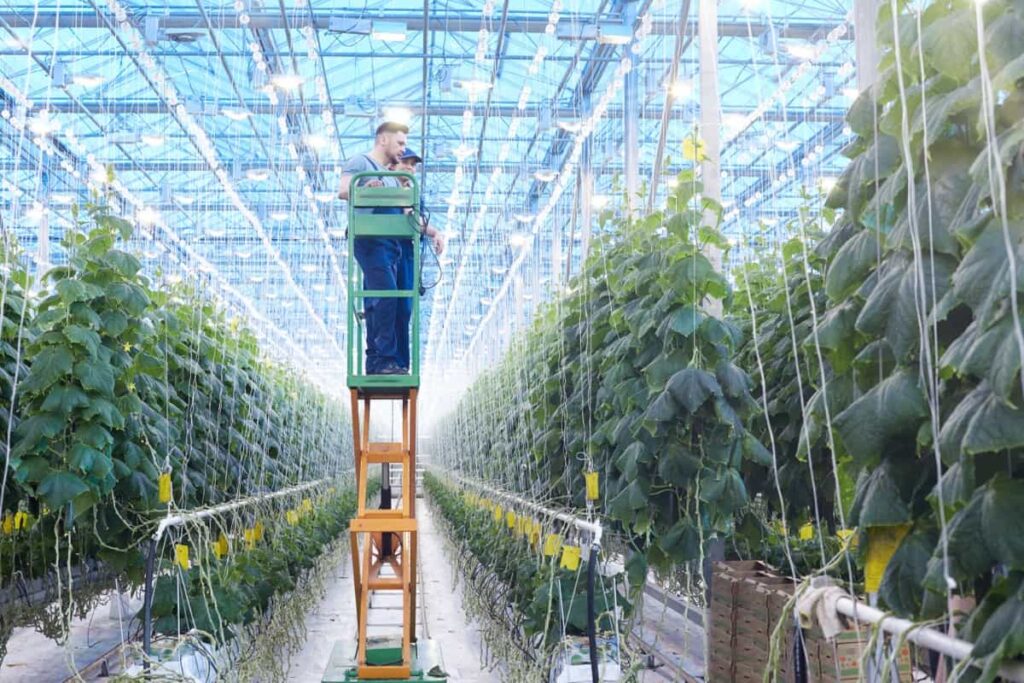
To find relevant grants, conducting thorough research and identifying programs that align with your greenhouse farming goals is important. For instance, many regions offer specific greenhouse subsidies to reduce the financial burden of constructing or operating a greenhouse.
Additionally, various programs might offer support in how to get a free greenhouse from the government, which can be a significant boon for new entrants into the sector. When applying for grants, it’s essential to carefully read the eligibility criteria and requirements, as these can vary widely. Preparing a detailed business plan and demonstrating a commitment to sustainable practices can strengthen your application.
Federal Grants for Greenhouse Farming Businesses
Federal grants are a key funding source for those interested in greenhouse farming. These grants are often designed to support specific farming practices and demographics, such as beginning farmer grants tailored to individuals new to the agriculture sector. When exploring how to get a farm grant at the federal level, it’s important to understand the various programs available.
For example, the U.S. Department of Agriculture (USDA) offers several grant opportunities that can apply to greenhouse farming. These grants can cover various needs, from start-up costs to operational improvements, and can be an invaluable resource for reducing the financial barriers associated with greenhouse farming.
To apply for these grants, farmers must provide detailed information about their farming practices, financial needs, and how the grant will be used to improve or expand their operations. Getting into the program can be tough, so you need to plan and prepare well. By aligning your greenhouse farming business with the grant program’s objectives, such as sustainability, innovation, or community impact, you can increase your chances of securing funding.
State Grants for Greenhouse Farming Businesses
State grants for greenhouse farming businesses are vital for entrepreneurs looking to establish or expand their operations at the state level. These grants are often tailored to meet the unique agricultural needs of a specific region and can be more accessible than federal grants. States may offer specific programs encouraging local agriculture, including subsidies for greenhouses, equipment, and technology upgrades.
You must check with your state’s Department of Agriculture or similar agencies to find these grants. They often list available grants, application procedures, and deadlines on their websites. When applying for state grants, it’s important to emphasize how your greenhouse business will contribute to the state’s agricultural sector, potentially focusing on job creation, local food production, or sustainable farming practices. Every state has its own rules and priorities. Learning about them and customizing your application can really help you succeed.
Local Grants for Greenhouse Farming Businesses
Local grants for greenhouse farming businesses play a crucial role in supporting agriculture at the community level. Local government bodies, community foundations, or local chapters of national organizations typically offer these grants. They tend to focus on initiatives that benefit the local community, such as boosting local food production, creating jobs, or enhancing sustainable agricultural practices.
In case you missed it: 12 Garden Watering System Kits – For Raised Garden Beds, Yards, Container Plants, Lawns, and Greenhouse
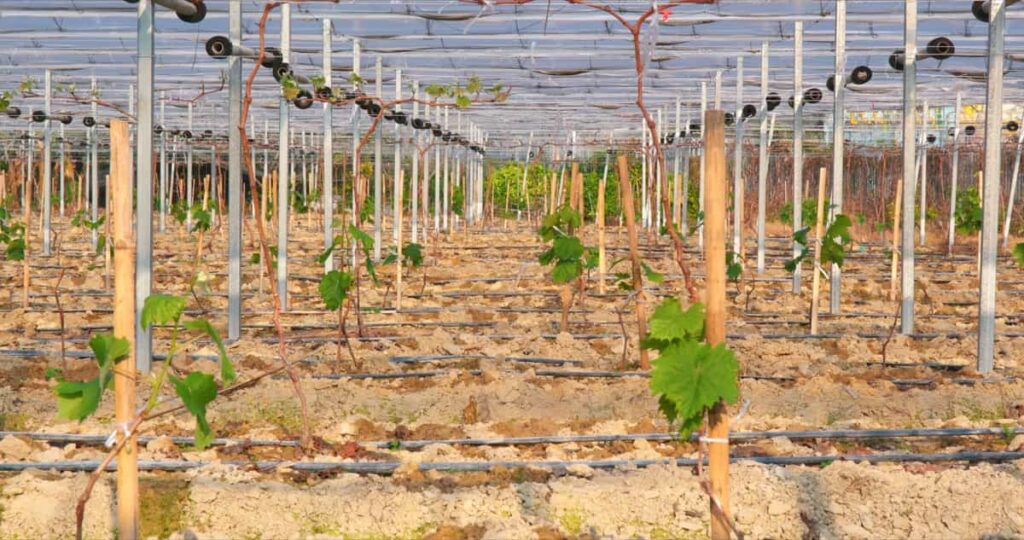
To identify potential local grants, connecting with local agricultural extension offices, community organizations, and other farmers who might have insights into available funding opportunities is beneficial. Local business development centers can also be valuable for finding grants and understanding the application process.
When applying for local grants, it’s crucial to demonstrate the direct impact your greenhouse business will have on the local community. This might include providing fresh, locally-grown produce to area residents, contributing to local farmers markets, or participating in community-supported agriculture programs.
Nonprofit Grants for Greenhouse Farming Businesses
Nonprofit grants for greenhouse farming businesses are offered by non-governmental organizations (NGOs), foundations, and charitable institutions. These grants are typically focused on promoting specific causes such as sustainable agriculture, organic farming, community development, or education. To find nonprofit grants suitable for your greenhouse business, it’s beneficial to research organizations that align with your farming practices and goals.
Attending agricultural conferences, networking events, and joining farmer associations can also lead to opportunities and valuable connections in the nonprofit sector. When you’re seeking these grants, make sure to explain clearly how your greenhouse farming matches the goals of the nonprofit group. This could involve demonstrating your commitment to environmentally friendly practices, contributing to local food security, or engaging in educational outreach.
Many nonprofit grants are project-based, meaning they fund specific aspects of your business, such as setting up an educational program or implementing innovative sustainable technologies. Be prepared to provide a detailed project proposal and a budget that outlines how the grant funds will be used.
Agricultural Grants for Greenhouse Farming Businesses
Agricultural grants for greenhouse farming businesses are specifically designed to support the agricultural sector. Government agencies, agricultural associations, and private entities focused on farming and rural development can offer these grants. They aim to promote agricultural innovation, enhance farm productivity, and support sustainable farming practices.
Staying informed about announcements from the Department of Agriculture, agricultural universities, and industry groups is important to locate these grants. Subscriptions to farming publications and membership in agricultural associations can also provide updates on new grant opportunities. When applying for agricultural grants, showcasing how your greenhouse farming business will contribute to the agricultural sector’s advancement is crucial.
This might include adopting new technologies, experimenting with sustainable farming techniques, or participating in research projects. Agricultural grants often look for projects with the potential for wide-reaching impacts, such as improving crop yields, reducing environmental impact, or enhancing farm efficiency. Prepare a comprehensive business plan that details your objectives, proposed methods, and the expected outcomes of your project.
Environmental Grants for Greenhouse Farming Businesses
Environmental grants for greenhouse farming businesses aim to promote practices that protect and enhance the environment. Government agencies, environmental organizations, and foundations dedicated to ecological sustainability often provide these grants. They typically support projects that demonstrate a commitment to reducing environmental impact, such as implementing water conservation techniques, using renewable energy sources, or adopting organic farming practices.
In case you missed it: Greece Greenhouse Farming: A Comprehensive Guide
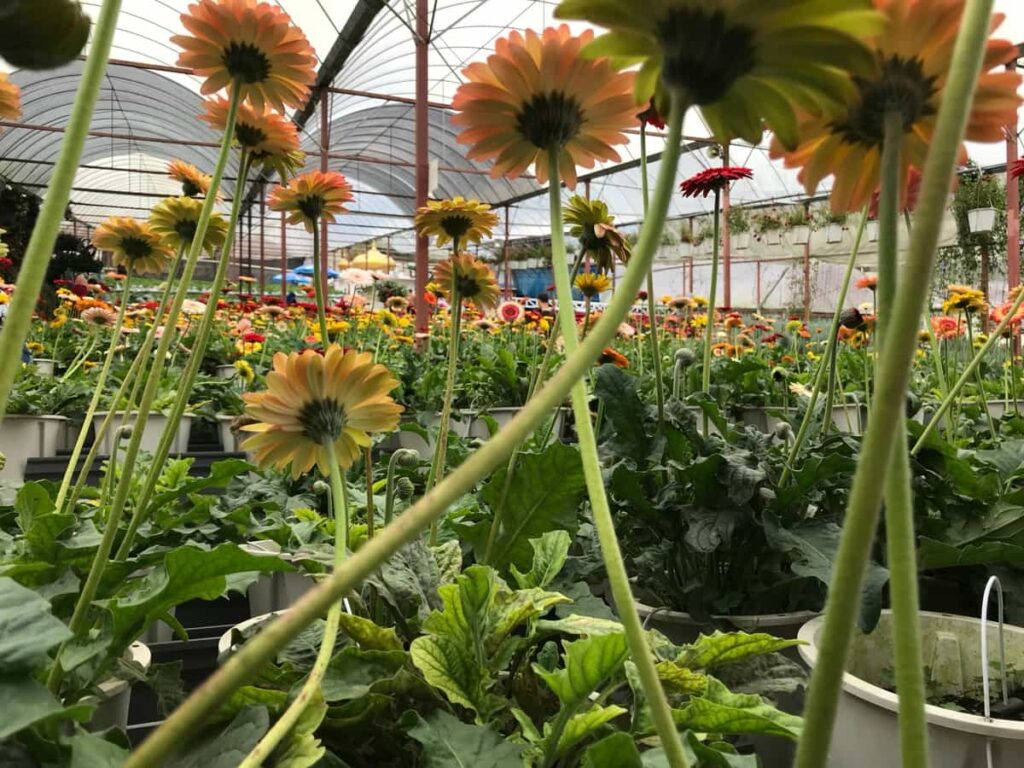
Researching organizations with an environmental focus and staying updated on their grant offerings is important to identify these grants. When applying, it’s crucial to highlight how your greenhouse farming methods align with environmental objectives. Emphasize initiatives like reducing chemical use, recycling water, or creating habitats for beneficial wildlife. Demonstrating a clear understanding of environmental challenges and how your business plans to address them can strengthen your application.
Research and Development Grants for Greenhouse Farming Businesses
Research and development grants for greenhouse farming businesses are designed to support innovation and technological advancement in agriculture. These grants, often funded by government agencies, educational institutions, and private corporations, aim to encourage the development of new farming techniques, crop varieties, and technology improvements in greenhouse farming. To tap into these opportunities, staying connected with agricultural research institutions and monitoring announcements from agencies that fund agricultural innovation is essential.
When applying for R&D grants, it is important to present a well-defined research project that addresses a specific agricultural challenge or opportunity. This could involve developing new methods to increase crop yields, experimenting with hydroponic systems, or trialing new varieties of plants suited to greenhouse environments. Your application should detail your research’s objectives, methodologies, expected outcomes, and potential industry impact.
Grants for Sustainable Practices in Greenhouse Farming
Grants for sustainable practices in greenhouse farming are focused on encouraging environmentally responsible and long-term viable farming methods. These grants, provided by various sources, including government programs, environmental groups, and sustainability-focused organizations, support initiatives like organic farming, resource conservation, and sustainable materials.
To find these grants, it’s advisable to look for organizations and programs prioritizing agriculture sustainability. When applying, the key is clearly articulating your commitment to sustainable farming practices and how they are implemented in your greenhouse operations. This might involve strategies for reducing water usage, using organic pest control methods, or employing sustainable soil management practices.
Explain how these practices benefit the environment and enhance the efficiency and profitability of your farming business. A lot of grants for eco-friendly farming want to help projects that can inspire other farmers. So, it’s good to show how your project can make a big difference.
Grants for Energy Efficiency in Greenhouse Farming
Grants for energy efficiency in greenhouse farming are designed to help farmers reduce energy consumption and lower greenhouse gas emissions. These grants, offered by government energy departments, environmental agencies, and energy-focused nonprofits, are critical for promoting renewable energy sources and energy-efficient technologies in greenhouse operations. To access these grants, watching announcements from energy agencies and organizations focused on sustainable energy in agriculture is important.
In case you missed it: Boosting Crop Yields and Income: A Guide to Greenhouse Farming in Tanzania
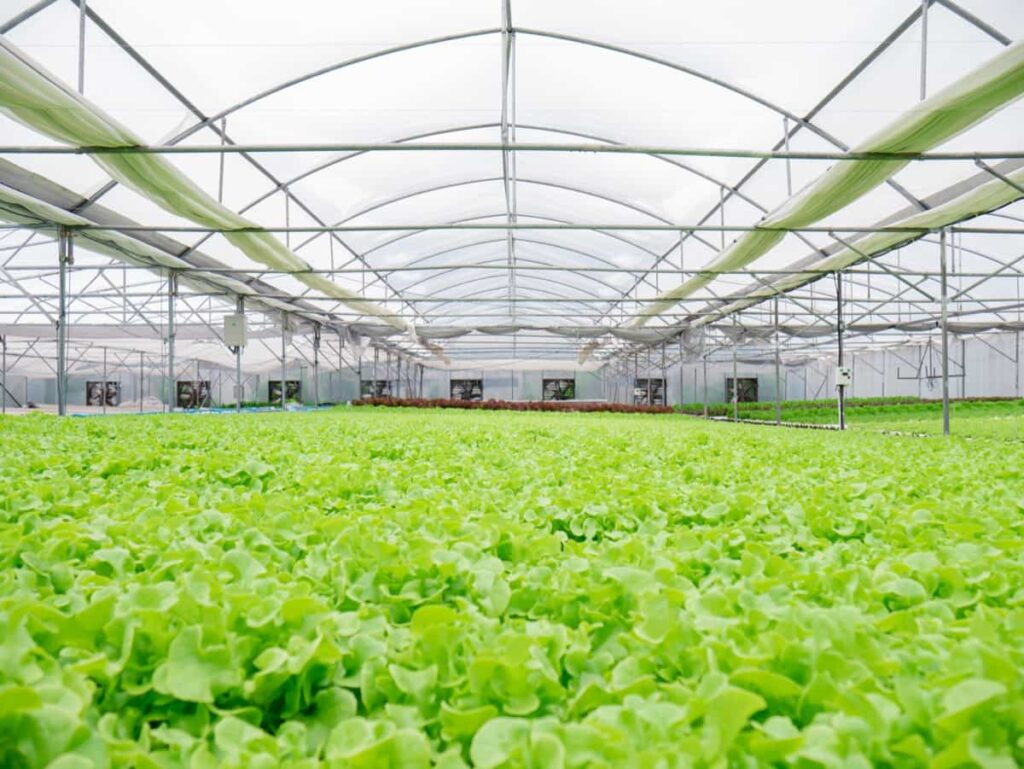
In your application, emphasize how implementing energy-efficient solutions, such as solar panels, LED lighting, or advanced climate control systems, will reduce your greenhouse’s energy consumption and environmental footprint. Detail the expected energy savings and how these improvements will enhance your farming operations’ overall sustainability and cost-effectiveness. These grants often require a detailed analysis of current energy use and savings projections from proposed improvements.
Grants for Training and Education in Greenhouse Farming
Grants for training and education in greenhouse farming are designed to support new and established farmers’ learning and skill development. These grants, provided by educational institutions, agricultural organizations, and some government programs, cover costs related to attending workshops, courses, and conferences and receiving hands-on training.
They aim to enhance knowledge in advanced greenhouse technologies, pest management, and sustainable farming practices. To benefit from these grants, farmers should seek opportunities that align with their educational needs and apply by demonstrating how the training will improve their farming business.
Tips for Applying and Securing Grants for Starting a Greenhouse Farming Business
When applying for grants to start a greenhouse farming business, thorough research and a well-prepared application are key. Start by identifying grants that align with your business goals and objectives. Carefully read the eligibility criteria and adhere to the application guidelines. A strong application should include a detailed business plan, clear objectives, and a demonstration of how the grant will aid in achieving your goals. Additionally, provide evidence of your commitment to agriculture, whether through experience, training, or community involvement. Staying organized and meeting all deadlines is crucial for a successful application process.
In case you missed it: Growing Green Futures: A Guide to Greenhouse Farming in Ethiopia
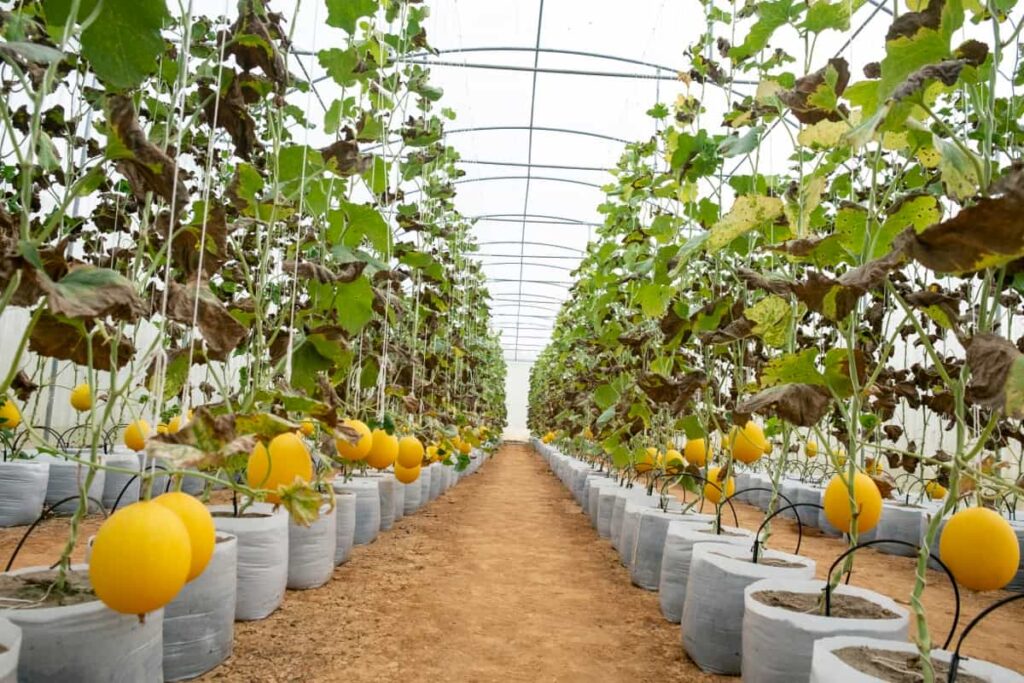
Conclusion
Securing grants for a greenhouse farming business requires dedication and careful planning. By staying informed, tailoring your applications to align with grant requirements, and demonstrating a clear vision for your farming business, you can increase your chances of obtaining the financial support needed to grow and succeed in the dynamic field of greenhouse farming.
- Crops Grown in Summer Season: Best Choices for Summer Gardening
- Organic Pest Control for Tomato Farming
- How to Maximize Sheep Farming Profit
- Broccoli Varieties: Choosing the Right Cultivars for Your Farm
- How to Raise Pigs in Your Own Backyard: A Comprehensive Guide
- Budget Friendly Sheep Shed Ideas: Cheap and Low-Cost Tips
- How Much Do Cattle Farmers Make: Revenue Streams in Cattle Farming
- Management Pests and Diseases in Your Cotton Field
- Sheep Farming Business Plan for Beginners
- Aquaponic Farming at Home: A Step-By-Step Guide
- Profitable Village Farming Business Ideas in 2024
- High-Yield Aquaculture: Fast-Growing Fish for Farming
- Effective Fish Pond Construction Techniques for Beginners
- Irrigation and Water Management in Pineapple Farming
- Blossom to Harvest: Mastering Flowering and Pollination in Papaya Farming
- Pig Fattening Essentials: From Selection to Sale for Beginners
- Raising Wagyu Cattle: A Complete Guide for Premium Beef Production
- Soil Types and Their Water Holding Capacity
- Optimizing Irrigation Schedules for Coconut Groves for Enhanced Yield
- Espresso Your Garden: Coffee Grounds for Healthier Acid-Loving Plants
- The Best Soil Mix for Snake Plants: How to Mix Your Own Snake Plant Soil
- Green Thumb Success: Expert Tips for Cultivating Greenhouse Beans All Year Round
- Bloom All Year Round: The Ultimate Guide to Indoor Hyacinth Care
- Eco-Friendly Gardening: How to Make Liquid Fertilizer from Kitchen Waste
- Ultimate Guide to Grow Anise in Pots: Explore Seed Propagation to Harvesting
- Guide to Raising Chester White Pigs: Discover Breed Facts to Growth Management
- Mastering the Elegance: The Ultimate Guide to Weeping Cherry Tree Care, Planting, and Maintenance
- Ultimate Guide to Planting Garlic in Grow Bags: Growing Strategies for Beginners
- How to Fix Spider Plant Leaf-Related Problems: Natural and Organic Remedies
- 10 Reasons Why Your Tulsi Plant is Shedding Leaves: Home Remedies and Solutions
- Optimizing Growth and Yield: The Advantages of Palm Bunch Ash Fertilizer
- Utilizing Neem Oil Extract as a Natural Pesticide for Hydrangea
- From Soil to Harvest: Various Ways in Which Farmers Can Use AI Tools
- Steps to Encourage and Induce Citrus Flowers: A Comprehensive Guide
- How to Fix Snake Plant Leaf-Related Issues: Natural and Organic Remedies
- Transform Your Garden into a Fragrant Oasis with Raat Ki Rani (Night Blooming Jasmine)
